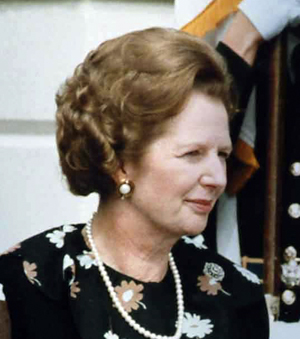
You’re probably already aware that Lady Margaret Thatcher, former Prime Minister of Great Britain, passed away today at the age of 87.
I think most American conservatives would be surprised to learn how hated this woman remains in her own country. On the basis of my own sampling of English culture, Mrs. Thatcher is commonly portrayed as a human ogress who closed factories, destroyed jobs, and snatched bread from the mouths of the hungry out of sheer hatred for the poor and their noble Socialist protectors.
This, for me, is the lesson of her life – if you do right in our time, do not expect any thanks. If you get away with a mere public shaming, you’ll be lucky. These things call for the endurance of the saints.
Death, it seems, is all around. On Saturday I attended my boss’s funeral. It was, I think, the largest I ever attended. He was a man much loved by many, many people.
Sometimes I think God is taking the best of us out of the world now, so they won’t have to see the evil that is to come.

I grew up with a father who was a small businessman running a family company with around a dozen employees. Even though he paid wages higher than the unions did, the unions harassed and vandalized the small family firm because it was not a union shop. My father wouldn’t talk much about politics with me while I was growing up, but he once told me (when I was around 11/12) that he could not support either major party because one party would support union power, while the other supported corporate power, and the two parties would only give lip service to the family firms and the family farms. He felt betrayed by both parties. Thatcher’s was a grocer’s daughter who was not part of the trade union culture or the social and political power class of British society. She was treated and regarded as a female political trophy piece by both the Tory and Labor parties. Her life and convictions embarrassed both groups/parties who are still in self-denial over their revealed hypocrisy.
I lived in England for a time while Thatcher was PM. I thought she was an amazing lady who stared down the labor unions (especially the miners) who so monopolized the country at the time. She fought through the Falklands War with grit and determination. Yet, it amazed me, attending an evangelical CofE church in Oxford, how much professing Christians disagreed with her and disapproved of her policies. And now, others of the so-tolerant Left in the UK are spitting on her grave. It’s enough to make you weep.
I’m sorry to hear about your boss.
But Margaret Thatcher: didn’t she say Nelson Mandela was a terrorist, and oppose sanctions against apartheid South Africa?
Yes, she, Reagan and their parties all considered Mandela and his African National Congress as terrorists because they engaged in guerrilla attacks and other legitimately terrorists actions. They were also wary of communist influence in the ANC, so they didn’t want the current South African government overthrown by Soviet communists. Once that appeared to pass by, they soften their stance on Mandela and organization.
Here are comments in 2006 by Peter Hitchens:
So, politics is complicated. I still don’t think Mr. Obama’s opposition of the Egyptian president was smart at all. Egypt is in chaos today, I believe, because the Muslim Brotherhood believes this is their hour to take the country. Did Thatcher and Reagan talk to the Apartheid government to urge them to change their race-based laws? I don’t know. Maybe they couldn’t. Americans are criticized for stepping up to change other countries and for keeping their hands off. We can’t win.